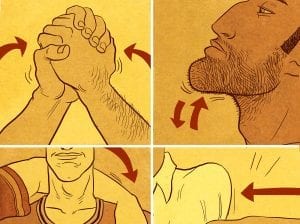Nine Lessons for Mothers with Sons
Raising sons can introduce challenges for women that these insights can turn into fulfillments.
Mothers hold an honored place in most societies, and rightfully so given the influence they can have on their child’s life—especially a boy’s. Since the mother-son bond is a young man’s first and most important female connection, it’s critical to recognize how certain behavioral habits can develop into positive—or negative—attributes later in life. Here are nine things moms can do to ensure their boys grow into the best of men.
1. Throw the Assumptions Away
Many women endorse “The Guy Alibi.” It’s usually the sentence invoked after experiencing the negligence, limitation, or disappointment attributed as common or expected male behavior. It goes something like this: “Well, what can you expect, he’s just a guy.” Perhaps the most radical thing a mother can do for her son—and for the women who will come after her—is reject this notion. Limitation should not be the watchword of masculinity; when your son is doing something that smacks of such smallness, don’t give in—demand more or better. It may not win you awards in the moment, but the quality and authenticity of his life, and the people his life affects, depend on it.
2. Teach Him to Be Chivalrous
It sounds old-fashioned, but it is powerfully feminist. If women are ever to gain true equality, true respect must be enforced first. Here’s where chivalry, if it is dead, can be resurrected. Ask your son to stand up when being introduced to a woman; require that he write a thank-you note to his aunt for a gift given; don’t allow him to interrupt when his sister is speaking—these small gestures are about respect for women, which helps cement a lifelong habit in men for viewing them as equals.
3. Model Emotional Intelligence
“Women are privileged when it comes to emotional intelligence,” says Richard Reed, PhD, a gender specialist and chair of the department of sociology and anthropology at Trinity University in San Antonio, Texas. “They have been trained to attune to their feelings and express them. Men haven’t grown up with that training.” Dr. Reed encourages mothers to ask their sons about their emotions and feelings right from the start. That way, a son “grows up to be a young man who is empowered because he can understand vulnerability.”
4. Debunk the Invincibility Myth
The Baby X studies of the 70s showed that when a child is born, we tailor our behavior according to gender. This means that many mothers often go along with the “boys don’t cry” and “it doesn’t really hurt” model of manhood they may have been taught as children. While resiliency is important to encourge, Dr. Reed argues that, “we have to recognize that all men feel pain and vulnerability.” By believing otherwise, he says, we don’t make boys more masculine, we only “ask them to lock themselves off.” This is dangerous because “if a kid doesn’t admit pain, it makes it really hard to build emotional intelligence or make him able to empathize as an adult. We need to build men who have empathic relationships with others.”

There is no such thing as “toxic masculinity.” That’s just gender bias by another name.
5. Don’t Give In to Misandry
At the same time, don’t give into the notion of “toxic masculinity.” The world is no doubt as populated by as many unappealing women as men. Your son is not in a doomed category simply because he was born male. That’s just gender bias by another name.
6. Make Room for Fatherhood
Qualities such as roughhousing, competitiveness, and athleticism may emerge naturally as a part of your son’s personality, and making room for your husband to guide him in these ways is important. In fact, studies show that in other cultures, after the nursing phase, mothers and fathers spend equal time in physical contact with their sons. What does this suggest? That not only is it natural for fathers to be nurturers, it is essential. “There is a stereotype of men being afraid to be emotional with sons,” says Dr. Reed, “but if you take women out of the picture, men are actually much more nurturing of each other.” Encourage your husband to spend more than just quality time with your son, but separate time. Doing so will help your son experience a rare and life-altering gift: a positive, fulfilling masculinity.
7. Celebrate Service
Some studies have shown that men are more likely than women to be narcissists, and that such narcissism is often accompanied by selfishness, entitlement, and a lack of compassion for others—three qualities that can prevent healthy, generous, and equal connections with partners and people alike. How to steer a son away from such tendencies? One word: service. Teaching your son to enrich the lives of others, whether by encouraging volunteerism or expecting his help with young or elderly family members, is a powerful (and masculine-affirming) check and balance to entitlement. It also addresses a common complaint many women have about men: That in being catered to as boys, they haven’t learned how to be intuitive and therefore don’t extend gestures that acknowledge and assuage certain emotions.
8. Observe Boundaries
In some families, moms can look to their sons for the affirmation they are not receiving from their husbands. Not only is this unfair to the son but it creates a pattern that values boys over girls. Be on the lookout for unfair expectations that can turn into a problematic favoritism.
9. Remain a Guiding Force
For older sons, especially ones contemplating fatherhood, a mother remains an important teacher. How so? In confronting parenthood, men confront their own childhood and questions they can be insulated from asking: What does it mean to be a good example and a good husband? How does one balance being a child’s ally while remaining the adult a child needs? Parenthood can be a time of homecoming for men; having their mothers share their wisdom and experience will once again lead to better men.






















